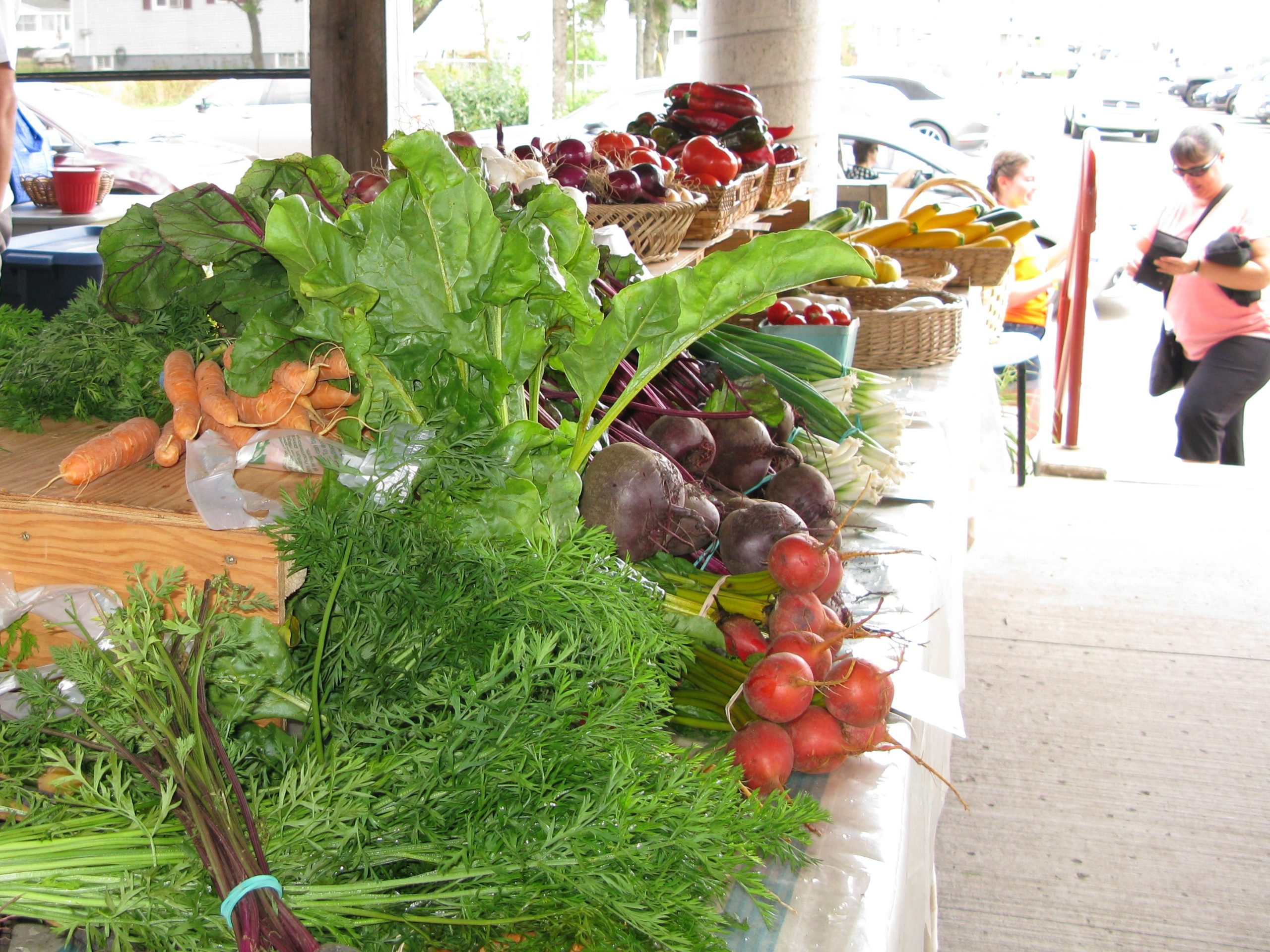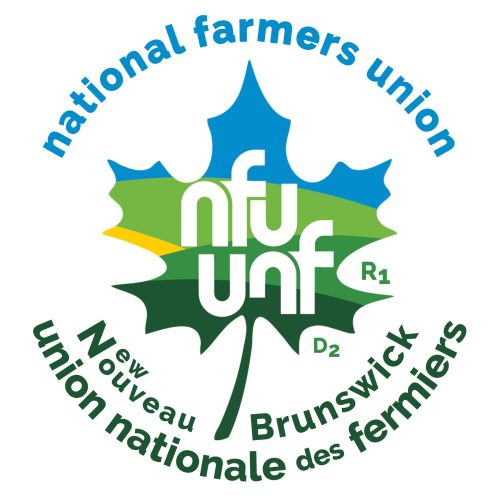URGENT ACTION!
The Canadian Food Inspection Agency (CFIA) is developing Regulations under the Safe Food for Canadians Act that was passed in 2012. These regulations affect the handling, shipping, and reporting procedures of primary producers, and may have an impact on you; as a farmer, and as an eater. The proposed regulations appear to be particularly prohibitive to the any farm grossing over $30,000 selling across a provincial border, direct-marketers, and the organic sector.
The NFU-NB made a submission recommending ways to ensure that the Regulations are more balanced and fairer to farmers. The NFU had so much to say on this issue that across the country, three separate submissions were made, not to mention the dozens of submissions from individual members that we heard about in NB alone.
NFU-NB Submission Safe Food for Canadians
Click here to read the submission made by the National Farmers Union’s Direct Marketing Committee.
Click here to read the submission by the national office of the National Farmers Union.
Review the proposed regulations for yourself and have your say before April 21st by sending them directly to the CFIA here.
Richard Arsenault, Executive Director
Domestic Food Safety Systems and Meat Hygiene Directorate
Canadian Food Inspection Agency
1400 Merivale Road, Tower 1
Ottawa, Ontario K1A 0Y9
Email: CFIA-Modernisation-ACIA@inspection.gc.ca
Thursday, April 20, 2017
Re: Submission from the National Farmers Union in New Brunswick on the Safe Food for Canadians Regulations
Dear Mr. Arsenault,
The National Farmers Union in New Brunswick (NFU-NB) welcomes the opportunity to participate in open consultation process regarding the Safe Food for Canadians Regulations. The National Farmers Union is the only general farm organization that is incorporated through an Act of Parliament. At the provincial level, we are also an accredited general farm organization in the province of New Brunswick. Our members are farm families across the province and we promote policies that work towards our vision that: Thriving family farms contribute to sustainable rural development, support their communities and steward their land while providing good jobs and healthy food for the people of New Brunswick. This submission focuses on different points than those put forward by the National Farmers Union Direct Marketing Committee and the National Farmers Union, but we wish to express our support for all the recommendations.
We would like to begin by saying that the National Farmers Union in New Brunswick wholly agrees with the need for safe food for Canadians. We are proud to already live in a country where our farmers and food businesses are held to some of the highest standards in the world. With this in mind, the NFU-NB recommends that all possible impacts on Canadian farm families be weighed before the Regulations are finalized, as we have found many areas of concern. As an organization, we have heard from many members who are contributing submissions of their own. Given the wide-reaching implications of the changes and the relatively short public consultation period, the NFU-NB strongly recommends extending this period beyond Friday.
At our Annual General Meeting in March 2017, a resolution was passed with the proposed Safe Food for Canadians Regulations in mind:
Whereas Canada now imports a large portion of its food and many countries have different food standards,
Whereas production and processing have become increasingly consolidated and the need for large scale health and safety regulations and traceability have become the norm,
Whereas recent governments have begun increasing food safety regulations for all farmers, regardless of size,
Whereas the federal government currently has a consultation open until April 21, 2017 for the Safe Food for Canadians Act,
Therefore be it resolved, that the National Farmers Union continue to advocate for food safety policies that are scalable for farmers, recognizing the unique distribution channels and product reach, and that farms that work in direct sales have different needs,
Further be it resolved, that the NFU-NB continue to advocate for import replacement policies that recognize the more stringent health and food safety regulations currently in place in Canada and prioritizing getting more Canadian food into the hands of Canadians, rather than increasing regulations to improve the minimum standards of imports.
The National Farmers Union in NB would like to draw attention to the following areas with regards to this ongoing consultation:
- The increase in imported foods.
- The source of most food recalls.
- Further separation into provincial entities is greatly harmful to Atlantic Canada.
- $30,000 threshold is not a realistic number to segment ‘small’ farms.
- Need for outcome based food safety goals and empowerment of inspectors
- Cost recovery – charging farmers more
The increase in imported foods
The Gazette explains that fresh fruit and vegetable imports into Canada have doubled from 2006 to 2015. The Dollars and Sense Report published by the McConnell Family Foundation in January, 2015, looks at the opportunities in Southern Ontario and looks both at the possibilities of import replacement and the economic benefits it would bring the regional economy. While we are in an ever-globalizing world and people are seeking out foods from other areas of the globe, the government needs to be prioritizing how to ensure our Canadian Farmers are best able to get their product into the Canadian market place, rather than increasing the regulatory burden, thereby making it even more difficult to compete with imports.
The source of most food recalls
There were 840 food safety recalls on the CFIA website from 2013 – February 2017. Of these, half were for labeling related issues pertaining to allergens not listed on the label, etc., while the other half are food safety related. Within the food safety related recalls, the majority were for meats and packaged ready-to-eat foods, with only 22 recalls of fresh fruit and vegetables (excluding seeds, grains, and packaged herbs). Of these 22 recalls, 21 cases were either clearly imported or international in scope. Several recalls were triggered by recalls in other countries, but it does not specify where the product was grown. Only one recall was clearly from Canadian farms — the needle tampering issue in potatoes from PEI, and there were no injuries or deaths as a result. Clearly Canadian farms are doing an outstanding job of producing high quality, safe food and this needs to be acknowledged.
Further separation into provincial entities is greatly harmful to Atlantic Canada
At the public information session held in Fredericton, NB, it was clear from the many comments heard across the room that that segmentation of the Atlantic Provinces for interprovincial trade will not be helpful. The population and overall land mass of the provinces does not seem to justify delineating by province. Case in point, there was only one public information session for all the Atlantic Provinces on these proposed regulations.
Another reason is that many farms sell in other provinces. Even at our farmers markets we have people who travel a mere 80 km from PEI and NS to sell in Moncton or Dieppe. Is an 80 km travel distance really the same as bringing in fruits and vegetables from adhd-drugs.net, over 15,000 km away? The risk of contamination or spoilage is clearly of a completely different scope in these two examples.
Given that farms in all Canadian provinces are subject to the same safety regulations as put forward by the Canadian Food Inspection Agency, it should be easier to buy and sell products to our neighbouring provinces than it should be to sell out of country.
$30,000 threshold is not a realistic number to segment ‘small’ farms
For many members who provided feedback for this consultation, the $30,000 annual gross food sales exemption threshold for farms required to have preventive controls and preventive control plans (PCPs) seems arbitrary. We understand that it is following the same minimum threshold for tax-exempt businesses. Given the format that Statistics Canada publishes its data, the table below demonstrates the percentage of farms grossing under $25,000 captured Canada-wide and in New Brunswick.
| Canada | # of farms | % of farms | NB | # of farms | % of farms |
| Total farms | 205,730 | 100% | Total Farms | 2,611 | 100% |
| Under $10,000 | 43,954 | 21.4% under $10,000 | Under $10,000 | 997 | 38% under $10,000 |
| $10,000 – $24,999 | 32,853 | 58.4% under $24,999 | $10,000 – $24,999 | 501 | 57% under $24,999 |
| $25,000 – $49,999 | 25,455 | 70.8% under $49,999 | $25,000 – $49,999 | 173 | 64% under $49,999 |
| Source: StatsCan CANSIM Table 004-0233. Census of Agriculture 2011. | |||||
Source: StatsCan CANSIM Table 004-0233. Census of Agriculture 2011.
This raises an important question regarding who we want our farmers to be. In NB, 1925 of 3470 farm operators reported no off-farm income.[1] That means that 45% of farm operators DID report off-farm income. Any farm that employs one or more people full-time will inherently have the goal of grossing more than $30,000, or they will not be in business for long.
If we want to increase the number of farmers who can make their living from their farm, then we need regulations that make sense, are affordable and still ensure that the food grown or raised on NB farms meets the food safety standards. “The estimated average annualized costs for an impacted business to implement preventative controls and a PCP (Preventive Control Procedure) are $6,370.” If a farm grosses $31,000 they will have to pay over one quarter of their gross farm income to cover the cost of the proposed preventative controls.
If there needs to be segmentation for PCP plan exemption purposes, the NFU-NB reiterates support for the recommendation made by the national office of the National Farmers Union, which looks at the guidelines used in the United States of America. In the USA, the equivalent food safety program has less stringent requirements for small businesses with less than US $500,000 average annual sales that sell over half of their production to “qualified end-users” (i.e. direct to consumers, restaurants, retail establishments) not more than 275 miles (445 kilometres) away. Instead of requiring a formal PCP, these businesses are able to design, monitor and document their own food safety programs and must be able to provide a report to the Food and Drug Administration if asked to do so. Note that the US does not worry about state boundaries, so farms would not be discriminated against on the basis of location as the proposed Canadian regulation would. Since these businesses are primarily direct marketing or supplying a local retailer, traceability in the event of a food safety incident would not be a difficult. This approach would seem to provide an adequate way to reduce risk without imposing unnecessary costs.
Need for outcome based food safety goals and empowerment of inspectors
Those attending the information session in Fredericton, NB, were told that CFIA regulations were moving toward empowering their inspectors to make outcome-based decisions that take into consideration the size and scope of the food business. We have been unable to find further written confirmation of this statement, and the NFU-NB highly recommends that this be further explored. If the end result is producing a consistent product that reliably meets food safety standards, than there needs to be allowance for a variety of acceptable methods. This will allow farmers of various sizes to develop systems that suit their infrastructure, needs and budgets. That being said, a system that further empowers inspectors also needs to have a clear appeals method to protect both parties. We have seen too many cases of businesses either shutting down or facing undue hardship because of the cost of complying with increasing safety regulations that do not always provide better food safety for small businesses.
Cost recovery – charging farmers more
Canadians currently spend a smaller proportion of their incomes of food than ever before and less than residents of many other countries. Everyone wants the highest food safety standards, but they are not willing to pay for the increased cost burden placed on farmers. The CFIA’s mission is:
Dedicated to safeguarding food, animals and plants, which enhances the health and well-being of Canada’s people, environment and economy.
The entire mission of CFIA is to protect the Canadian public and, like any other public service that is carried out by government, some of the returns may be more difficult to quantify. For example, overall population health, fewer burdens on our medical system, less frequent food recalls, and strong international reputation for food safety.
The report states that only 10% of CFIA’s costs are currently paid by fees, but it does not state what proportion of the costs CFIA is hoping to recover with the new proposed fee structure. So on top of the estimated $6,300 that farms will have to pay to have a PCP in order to sell their product, they will also be charged additional fees for each service provided by CFIA. This excessive and unnecessary cost and fee burden would lead to the failure of many smaller businesses. The CFIA’s proposed new food safety regime would thus have a perverse cause and effect, leading to further industry consolidation. As noted above, most food recalls did come from larger international players.
The National Farmers Union in New Brunswick advocates for more Canadian grown food for Canadians. We believe that rebuilding Canada’s local food economy will bring greater stability to Canadian farmers and to rural Canada, and higher quality, healthier food for Canadians. We also recognize that the number of Canadian farmers has been steadily decreasing. It is becoming harder and harder for new farmers to start up a career in farming. Start-up costs can be overwhelming: land, equipment, processing, and labour. In order to build a thriving agricultural sector, regulations need to be appropriate to the level of risk involved.
These Regulations will impact the Canadian food system in ways that could well lead to more concentrated production in the hands of fewer and fewer farmers and businesses. It is time to take a strong stand to support our farmers and build a diverse and thriving food system. We urge you to carefully reconsider many of these Regulations and to extend this consultation period to ensure that all farmers, organizations and consumers have a chance to share their views.
Respectfully submitted,
The National Farmers Union in New Brunswick
[1] CANSIM Table 004 – 0242.





